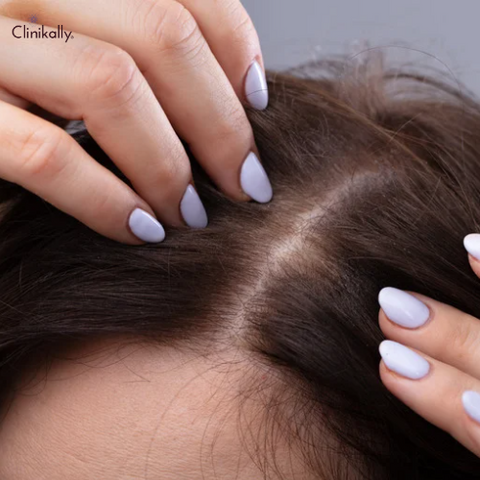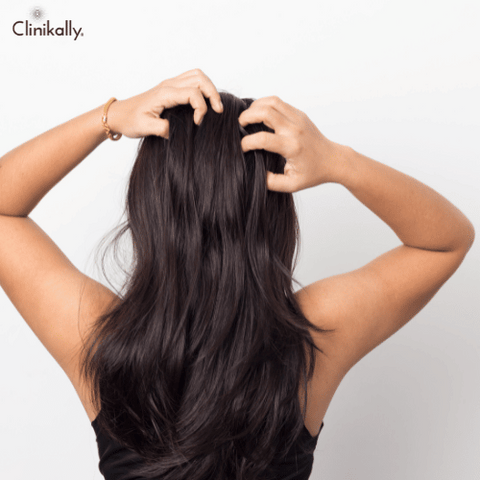Hydrolyzed proteins are a popular ingredient in hair care products due to their ability to nourish and repair hair. These proteins were broken down into smaller molecules by processing so that they could more effectively penetrate the hair shaft. They are obtained from natural sources like wheat, soy, and keratin. Hydrolyzed proteins can help restore damaged hair by repairing gaps and fractures in the hair shaft when applied to the hair. By enhancing its flexibility and decreasing breakage, they can also aid in strengthening hair. Hydrolyzed proteins can also aid in enhancing hair texture by making it softer, smoother, and simpler to manage. It's crucial to keep in mind that different types of proteins could help hair in different ways when looking for hair care products that contain hydrolyzed proteins. It's also critical to pay attention to the protein concentration in the product because too much protein might make hair fragile and prone to breakage.
What are Hydrolyzed Proteins and How Do They Benefit Hair?

Proteins that have undergone a process known as hydrolysis to decompose into smaller molecules are known as "hydrolyzed proteins." The protein is broken down into tiny peptides and amino acids during this process, which facilitates easier absorption into the hair shaft. There are several different sources of hydrolyzed proteins, including wheat, soy, keratin, collagen, and silk. Hydrolyzed proteins, which are used in hair care products, have various advantages for hair. Among the most noteworthy advantages are:
-
Repairing damaged hair: Hydrolyzed proteins can fill in voids and cracks in the structure of the hair by penetrating the hair shaft. This enhances the overall appearance of hair while repairing damaged hair.
-
Hair strengthening: Hydrolyzed proteins can make hair more elastic and strong, lowering the likelihood of breakage and damage. This can result in longer, healthier hair over time.
-
Enhancing moisture retention: Hydrolyzed proteins can aid in the retention of moisture in the hair, reducing dryness and brittleness. This can make hair softer and more manageable.
-
Improving hair texture: Hydrolyzed proteins can smooth the hair cuticle, reducing frizz and tangles. This can result in smoother, easier-to-manage hair.
-
Increasing shine: Hydrolyzed proteins can help improve the shine and lustre of your hair, making it look healthier and more vibrant.
Hydrolyzed proteins are widely used in hair care products such as shampoos, conditioners, hair masks, and leave-in treatments. The type and concentration of hydrolyzed protein used in a product may differ depending on the desired effect and hair type.
Hydrolyzed Proteins as a Hair Nourishing and Growth-Promoting Ingredient
If you want to nourish and promote hair growth, hydrolyzed proteins can be a great addition to your hair care routine. Here's how it's done:
-
Promoting healthy hair growth: Hydrolyzed proteins contain amino acids, which are required for the development of healthy hair. Your hair will look fuller and thicker because of the strengthening effects of these amino acids on hair follicles and the stimulation of new hair growth.
-
Repairing damaged hair: By repairing gaps and cracks in the hair structure, hydrolyzed proteins can aid in the healing of damaged hair. Your hair will be able to grow longer and healthier if this stops additional harm and breaking.
-
Strengthening hair: Hydrolyzed proteins can strengthen hair strands, reducing the risk of breakage and damage. This can lead to longer, healthier hair over time.
-
Improving hair texture: Hydrolyzed proteins can smooth the hair cuticle, reducing frizz and tangles. This can result in smoother, easier-to-manage hair.
-
Increasing shine: Hydrolyzed proteins can aid in enhancing the sheen and lustre of hair, giving it a healthier, more youthful appearance.
Look for products that contain hydrolyzed wheat, soy, keratin, collagen, or silk proteins to add them to your hair care regimen. These proteins can be found in hair masks, leave-in treatments, conditioners, shampoos, and conditioners. For best results, make sure to use the product in accordance with the instructions on the label. Hydrolyzed proteins have the potential to be an effective ingredient in promoting healthy hair growth, repairing damaged hair, and improving hair texture and shine.
Hydrolyzed Proteins and Their Effects on Hair Health and Repair
Hydrolyzed proteins can have a variety of beneficial effects on hair health and repair due to their ability to permeate the hair shaft and deliver vital nutrients. Some of the main advantages of employing hydrolyzed proteins in hair care include the following:
-
Strengthens hair: Amino acids found in hydrolyzed proteins can help strengthen hair strands, reducing the risk of breakage and damage. This can result in longer, healthier hair over time.
-
Repairs damage: Hydrolyzed proteins can aid in the repair of hair shaft damage by filling gaps and breaks in the hair structure. This can help your hair grow longer and healthier by preventing further damage and breakage.
-
Moisturizing: Hydrolyzed proteins can aid in the retention of moisture in the hair, preventing dryness and promoting hydration. This can lead to softer, more manageable hair.
-
Improves texture: Hydrolyzed proteins can smooth the hair cuticle, making it less prone to frizz and tangles. This can result in softer, more manageable hair with better texture.
-
Improves shine: Hydrolyzed proteins can help improve the shine and lustre of hair, making it look healthier and more vibrant.
The Potential Benefits of Hydrolyzed Proteins for Hair Strengthening and Texture Improvement

Hydrolyzed proteins can help strengthen and improve the texture of your hair. Here are a few examples of how hydrolyzed proteins can help:
-
Amino acids found in hydrolyzed proteins can help strengthen hair strands, lowering the risk of breakage and damage. This can result in longer, healthier hair over time.
-
The texture is improved because hydrolyzed proteins can smooth the hair cuticle and lessen frizz and tangles. This can result in softer, more manageable hair with better texture.
-
Hydrolyzed proteins can help improve hair elasticity, making it less prone to breakage and damage. This can lead to healthier, more resilient hair over time.
-
Hydrolyzed proteins help to retain moisture in the hair, preventing dryness and promoting hydration. This can result in softer, more manageable hair.
-
Hydrolyzed proteins can help improve the shine and luster of hair, making it look healthier and more vibrant.
Hair products like shampoos, conditioners, masks, and leave-in treatments frequently contain hydrolyzed proteins. They can come from many different sources, such as the proteins found in wheat, soy, keratin, collagen, and silk. These proteins are divided up during the hydrolysis process into smaller pieces that the hair can quickly absorb. It's crucial to read the label and use the product as instructed when using goods that include hydrolyzed proteins. It's crucial to use these products sparingly because excessive or improper use might result in accumulation or harm.
Hydrolyzed Proteins and Their Role in Strengthening Hair from Root to Tip
Hydrolyzed proteins have a significant impact on hair strength from root to tip. The following are some applications for hydrolyzed proteins:
-
Strengthens the hair shaft: Hydrolyzed proteins can help strengthen the hair shaft by filling gaps and cracks in the hair cuticle. This can help reduce breakage and improve overall hair health and strength.
-
Promotes hair growth: The amino acids found in hydrolyzed proteins can help stimulate hair growth by providing the building blocks required for healthy hair growth. This can result in longer, thicker, and stronger hair over time.
-
Improves scalp health: Hydrolyzed proteins can help improve scalp health by reducing inflammation and increasing circulation. This can result in a healthier scalp environment, which promotes healthy hair growth.
-
Reduces damage: Hydrolyzed proteins can aid in minimizing the harm done by environmental elements like UV radiation and pollutants. They can also aid in shielding the hair from hot styling appliances like curling irons and flat irons.
-
Boosts moisture retention: Hydrolyzed proteins can help the hair retain moisture, preventing dryness and breakage. This can result in softer, easier-to-manage hair that is less prone to damage.
Numerous hair care items, such as shampoos, conditioners, hair masks, and leave-in treatments, contain hydrolyzed proteins. They frequently come from sources like keratin, collagen, wheat, soy, or silk proteins. It's crucial to follow the directions and only use goods with hydrolyzed proteins as indicated. The accumulation of damage to the hair results from improper or excessive use of these products. Hydrolyzed proteins, however, can be a highly beneficial substance for increasing overall hair health and strengthening hair from root to tip when used properly.
Hydrolyzed Proteins and Their Impact on Hair Texture and Moisture
Hydrolyzed proteins can affect hair texture and moisture levels significantly. Here are some of the ways they can help your hair in these areas:
-
Improves hair texture: Hydrolyzed proteins can help improve hair texture by filling gaps and cracks in the hair cuticle. This can result in hair that is smoother, shinier, and easier to manage.
-
Increases hair elasticity: Hydrolyzed proteins can help increase hair elasticity, making it more resistant to breakage and damage. Over time, this can result in healthier, stronger hair.
-
Boosts moisture retention: Hydrolyzed proteins can help the hair retain moisture, preventing dryness and breakage. This can result in softer, easier-to-manage hair that is less prone to damage.
-
Enhances curl definition: Hydrolyzed proteins can help curly hair types improve curl definition by reducing frizz and promoting more defined curls.
-
Provides nourishment: Hydrolyzed proteins can nourish the hair, assisting in the repair and strengthening of damaged strands. This can result in healthier, more vibrant hair over time.
Proteins that have been hydrolyzed can be a very powerful element for enhancing the hydration and texture of hair. They are frequently sourced from sources like wheat, soy, keratin, collagen, or silk proteins and can be found in a wide variety of hair care products. To prevent buildup or harm to the hair, it's crucial to use hydrolyzed protein-containing products as prescribed and sparingly.
Understanding the Safety and Efficacy of Hydrolyzed Proteins in Hair Care Products

The use of hydrolyzed proteins in hair care products is generally regarded as safe. They have been thoroughly investigated and have been discovered to be efficient in supplying hair with a variety of advantages, including greater strength, enhanced moisture retention, and improved texture. However, there is always a chance for negative responses with any component, especially in people who have allergies or sensitivities to particular kinds of proteins. Always perform a patch test on new items before using them, and stop using them if any irritation or unfavourable reactions happen.
The degree of hydrolysis, the concentration of the protein in the final product, and the specific protein source all affect how effective hydrolyzed proteins are. To get the desired outcomes, it's crucial to pick goods that include premium, well-prepared hydrolyzed proteins. It's also crucial to remember that, despite the fact that hydrolyzed proteins can greatly enhance hair health, they do not provide a panacea for all hair problems. Use a comprehensive hair care routine that includes a balanced diet, adequate hydration, frequent cutting, and maintenance in order to keep healthy hair.
Research on Hydrolyzed Proteins and Their Effects on Hair Health and Safety
The use of hydrolyzed proteins in hair care products and their impact on the health and safety of hair have been the subject of much investigation. One study indicated that hydrolyzed wheat protein can considerably increase the tensile strength of hair and decrease breaking. This study was published in the International Journal of Cosmetic Science. Another study indicated that hydrolyzed keratin can enhance hair shine and lessen frizz. It was published in the Journal of Cosmetic Science.
According to a study in the Journal of Cosmetic Dermatology, hydrolyzed silk protein can increase hair elasticity and lessen environmental stressor-related hair damage. In terms of safety, a review of the existing studies found that hydrolyzed proteins are often safe for use in cosmetic goods, including hair care products. This review was published in the Journal of the American Academy of Dermatology. The review did point out that people with allergies or sensitivities to particular kinds of proteins could have negative outcomes.
The Importance of Ingredient Safety and Product Formulation in Hair Care
In terms of hair care, ingredient safety and product composition are crucial. It is crucial to make sure that the components used in hair care products are safe and effective because they come into close contact with the scalp and hair. Sulphates and some alcohols, which are frequently present in hair care products, can strip the hair of its natural oils, resulting in dryness and damage. Additionally, some people may experience allergic or irritant reactions to certain chemicals. In order for substances to combine in a way that yields the desired results while avoiding unfavourable consequences, product formulation is also essential. For instance, certain substances might interact with others in a way that lessens their effectiveness or makes the product unstable or ineffective.
The ingredients used in any DIY hair care treatments should also be carefully considered, therefore, it's crucial to select hair care solutions that are developed with safe and effective chemicals. It's also crucial to follow product directions and avoid overusing products because doing so can result in a lot of buildup or irritation. It might also be useful to seek the advice of a dermatologist or trichologist when determining the best and safest methods of hair care for particular hair types and issues.
Incorporating Hydrolyzed Proteins into Your Hair Care Routine

Hydrolyzed proteins can be used in a variety of ways in your hair care routine. Here are some pointers on how to make the most of them:
-
Shampoos, conditioners, and hair masks that contain hydrolyzed proteins should be avoided. These products have been specially designed to provide the benefits of hydrolyzed proteins to your hair.
-
Once a week, apply a hydrolyzed protein hair mask to your hair. Apply the mask to damp hair and leave it on for the recommended time (5-10 minutes) before rinsing.
-
To boost the nourishing and strengthening properties of your regular conditioner or styling product, add a few drops of a hydrolyzed protein serum or oil.
-
Consider using a hydrolyzed protein leave-in conditioner or spray. These products can protect your hair from damage while also keeping it hydrated and healthy throughout the day.
-
Choose products with hydrolyzed proteins with a lower molecular weight if you have fine hair, as they will penetrate the hair shaft more easily.
Remember to follow the product packaging instructions, as different products may have different usage recommendations. Additionally, any new product should be patch tested before being applied to your hair to avoid potential irritation or allergic reactions.
The Best Ways to Use Hydrolyzed Proteins for Nourished, Healthy, and Beautiful Hair
Hydrolyzed proteins can benefit hair in a variety of ways, including increased strength, improved texture, and improved moisture retention. Here are some of the best ways to use hydrolyzed proteins for beautiful, nourishing hair:
-
Use a protein-rich shampoo: Look for shampoos with hydrolyzed proteins as the main ingredient. These shampoos can nourish and strengthen hair while gently cleansing it.
-
Apply a protein-rich hair mask: Use a protein-rich hair mask once a week to help repair and strengthen damaged hair. Apply the mask to damp hair and leave it on for the recommended time before thoroughly rinsing.
-
Apply a protein-rich conditioner after shampooing: After shampooing, apply a conditioner containing hydrolyzed proteins. This can help to hydrate and strengthen hair, giving it a healthy appearance and feel.
-
Use a leave-in treatment: Look for leave-in treatments that contain hydrolyzed proteins to help protect and elasticity your hair. Apply a small amount to damp hair, comb through, and style as usual.
-
Apply a protein-rich oil or serum: To nourish and protect hair, use a hair oil or serum containing hydrolyzed proteins. To help lock in moisture and protect against heat damage, apply a few drops to damp hair before blow-drying or styling.
Remember to start with a small amount of product and gradually increase as needed to avoid over-protecting your hair, which can cause stiffness and breakage. Additionally, any new product should be patch tested before using it all over your hair to avoid potential irritation or allergic reactions.
Common Hair Care Products that Contain Hydrolyzed Proteins and Alternatives to Consider
Shampoos, conditioners, and hair masks all frequently contain hydrolyzed proteins as a component. Hydrolyzed keratin, silk protein, wheat protein, and collagen are a few examples of hydrolyzed proteins that are frequently present in hair care products. Consider hair care products that use organic plant-based ingredients like aloe vera, coconut oil, argan oil, or shea butter to nourish and strengthen hair if you're seeking alternatives to those that contain hydrolyzed proteins. Additionally, some synthetic substances, such as panthenol or amino acids like arginine and lysine, can offer comparable advantages.
It is crucial to remember that the effectiveness of these substitutes may change depending on your hair type and specific requirements. It is wise to carefully study the ingredient list on hair care products and conduct research to make sure the products you select are both effective and safe for your hair.
Final Thoughts: The Power of Hydrolyzed Proteins for Revitalizing Damaged Hair

Hydrolyzed proteins can be an effective remedy for reviving brittle hair. They nourish and restore the hair shaft from within, strengthening the hair and enhancing its texture, shine, and general health. In order to make proteins easier for the hair to absorb and utilize, hydrolyzed proteins are broken down into smaller peptides. This implies that they can heal damage and fortify against further damage by penetrating deeply into the hair shaft. Hydrolyzed proteins are used in hair care products, and while there are some safety questions about them, research indicates that they are typically safe when used as recommended. It is critical to select products that have been formulated with the proper balance of ingredients to ensure that they are effective and safe for your hair.
If you have damaged hair, incorporating hydrolyzed protein products into your hair care routine can help nourish and strengthen your hair. However, it is also critical to approach hair care holistically by eating a healthy diet, drinking plenty of water, and avoiding harsh chemicals and heat-styling tools as much as possible. You can help your hair look and feel its best by giving it proper care and attention.
















